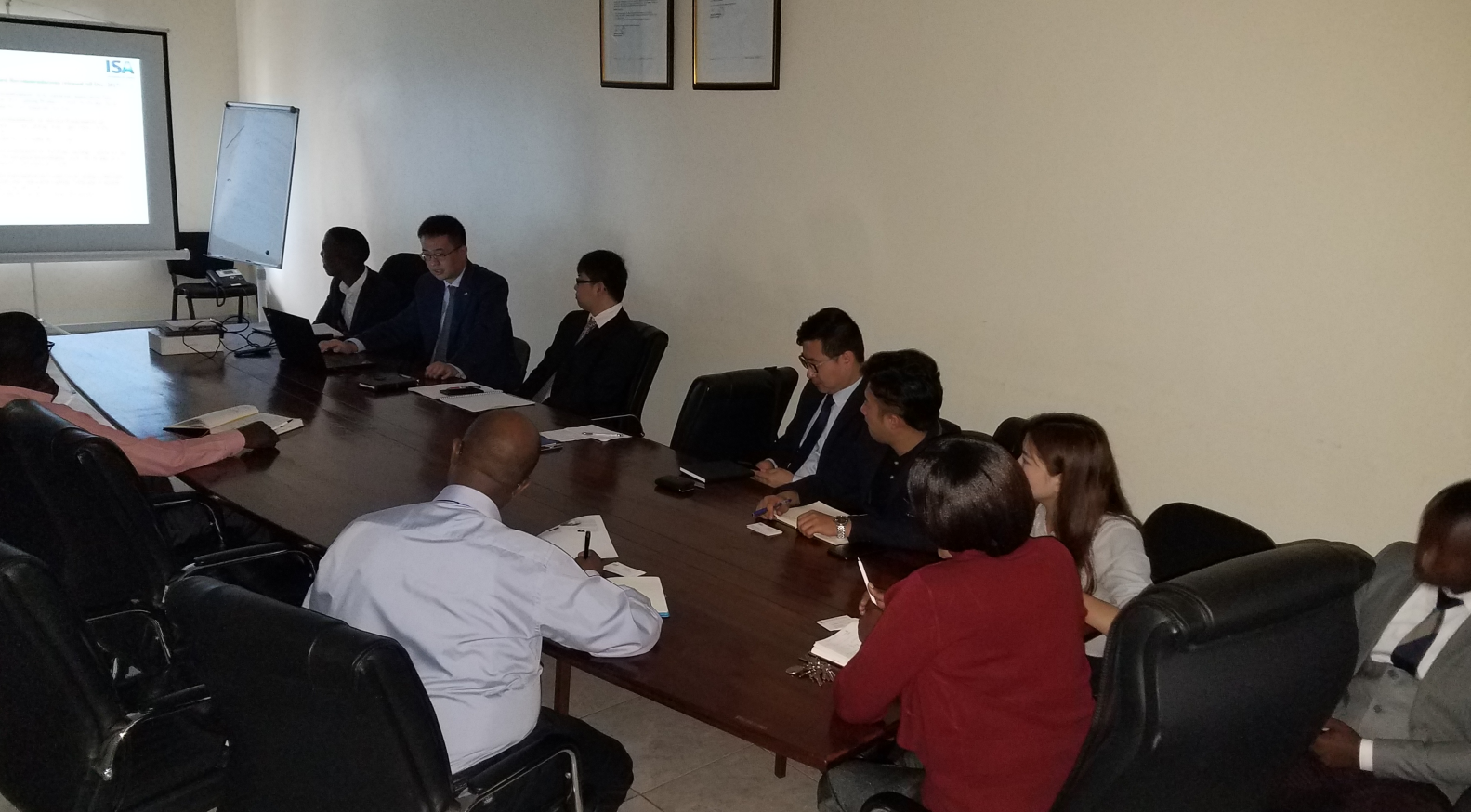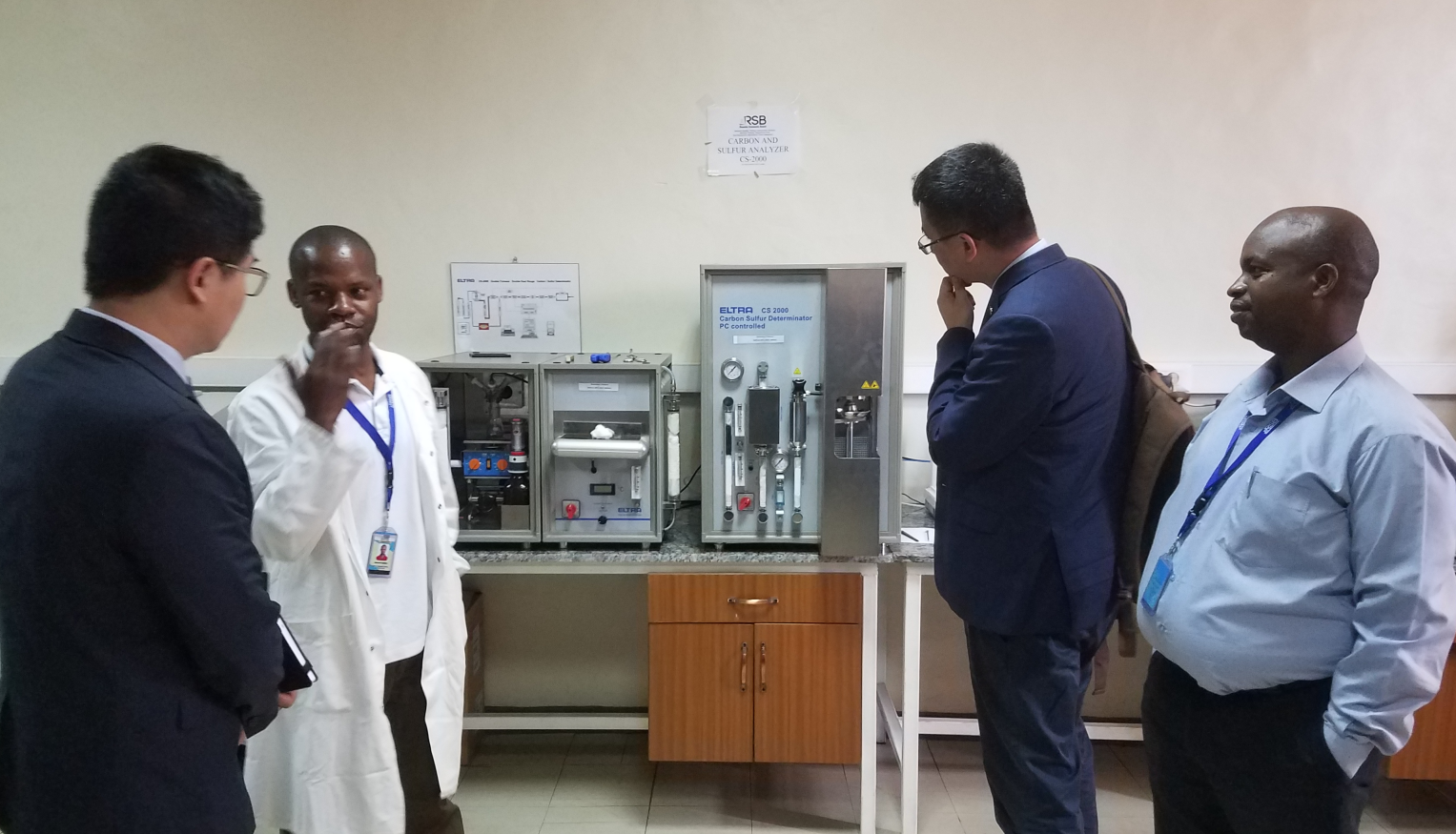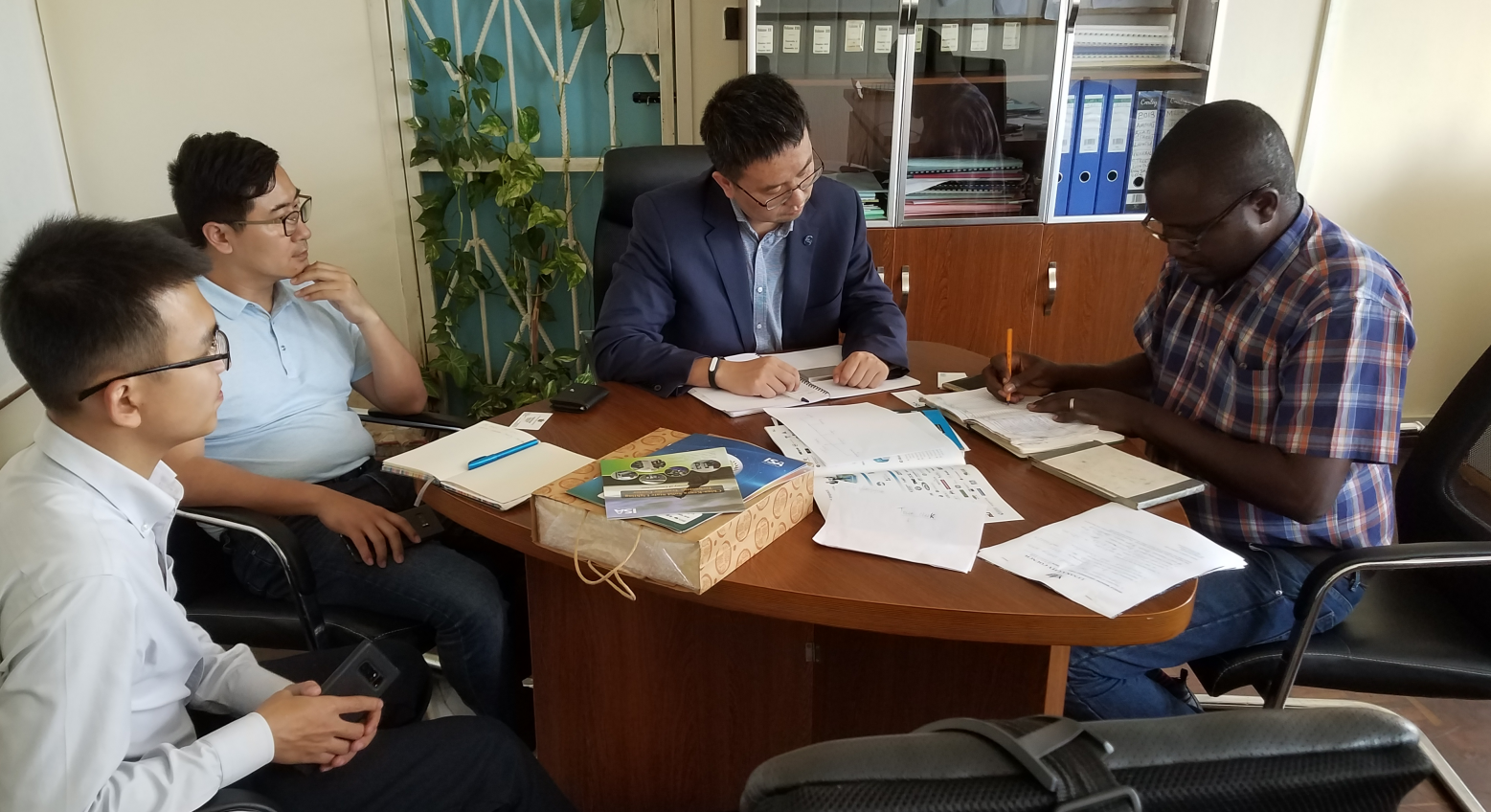To respond the requirements of ISA members and better understand the east Africa SSL industry and market development the Secretariat of International SSL Alliance (ISA) had paid a visit to the related government departments, competent authorities and local companies in Rwanda and Zambia from April 24th to 30th, 2018. The possible cooperation between ISA and the relevant organizations in Rwanda and Zambia had been discussed with the governmental officials and the CEO of the companies.
1. Visiting in Rwanda
The Secretariat of ISA visited Rwanda Standards Board (RSB), Energy Sector of Ministry of Infrastructure (ESMI), Rwanda Energy Group (REG), and Energy Utility Corporation Limited (EUCL).

The Secretariat of ISA introduced the main objective of this visiting, the vision and mission of ISA and its Technical Committee on Standardization (TCS), possible cooperation modes, the development framework and status of global SSL standards.
(1) The Secretariat of ISA visited Rwanda Standards Board (RSB), and had a meeting with the Director General, the director and researchers of RSB. After the meeting, they visited material, electrical, mechanical testing laboratory, Metrology Unite of the subordinate of RSB.
a. The RSB is responsible for the work of standard development, publication, testing, certification and measurement.
b. The RSB now adopts only two CIE standards. The government of Rwanda needs more SSL standards and quality policy.
c. The officers in RSB expressed their willingness to cooperate with ISA on bring in the Recommendations of ISATCS to RSB and to sign a MOU with ISA. They also hoped to have the opportunity to join in the work of ISATCS.
(2) The Secretariat of ISA had a bilateral discussion with the coordinator of the Energy Sector of Ministry of Infrastructure (ESMI), The coordinator said that there were about 60 projects in Rwanda's airports and road construction which adopted public-private partnership (PPP) mode. The projects in Rwanda carried out now almost adopted the mode of Engineering (Design), Procurement, Construction +Finance (EPC+F) by making a bid.
b. He welcomed any foreign companies to come to Rwanda to carry out street light projects.
(3) The Secretariat of ISA visited the headquarter of Rwanda Energy Group (REG) and Energy Utility Corporation Limited.
a. The CEO of REG introduced the work area of REG, and the status of street lighting projects in Rwanda.
b. The CEO of REG introduced that Rwanda had begun bidding for 955 kilometers of roads. The companies that wanted to carry out SSL projects must make a bid, and the business mode would be EPC+F.
c. The projects of street lights were charged by the Ministry of Local Authority and Local governments.
d. A senior engineer, responsible for standard of Energy Utility Corporation Limited, introduced that this company was responsible for the installation, charging, operation and maintenance of street lamps.
e. In Rwanda, the electricity bill is tiered and there are about 30,000 street lamps in Rwanda,
f. The senior engineer express his very interesting for the cooperation with ISA on street lighting as well as its control technologies.
2. Visiting in Zambia
The Secretariat of ISA had a meeting in Lusaka with 8 representatives from Zambia Bureau of Standards (ZBS), Zambia Development Agency (ZDA), Zambia Ministry of Energy (ZME), Zambia Ministry of Local Government, Zambian Bureau of Standards Enforcement and Supervision (ZBSES) and the Lusaka City Council.

The Secretariat of ISA also introduced the main objective of this visiting, the vision and mission of ISA and its Technical Committee on Standardization (TCS), possible cooperation modes, the development framework and status of global SSL standards.
The Secretariat had a bilateral discussion with the Deputy Director General of Zambia Bureau of Standards (ZBS). The DDG expressed that Zambia had not yet imposed compulsory certification on LED products, and she believed that the ZBS was working in this direction and would be compulsory soon. The ZBS did not test imported LED products, but charged certain amount of the total value of the goods as testing fees. At last, she expressed the wish to cooperate with ISA on SSL standards and testing.
The Secretariat then visited Zambia Ministry of Local Government, Road Development Agency and the City Council of Lusaka
(1) The Deputy Director of Zambia Ministry of Local Government (ZMLG) expressed that it could adopt Public-Private Partnership (PPP) mode for street light projects in Zambia. For local lighting projects and the maintenance of street lamps, they were usually charged by local government departments while the ZMLG was in charge of the overall national strategical plan and at the top design/coordination.
(2) Two engineers from Road Development Agency (RDA) introduced the functions of RDA. They introduced that
a. Almost half of the cost of road construction in Zambia was solved by the country itself, and the other half usual depended on the bilateral aid.
b. RDA only considered road construction, and did not consider the installation of street lamps. If a new road was planned to install street lamps, it was determined by the local governments.
c. The power to make decision on the construction projects of street lamps was mainly in the local governments.
d. There was a big shortfall in electricity in Zambia, which led a strong desire to save energy.
(3) Visiting in the City Council of Lusaka
The Secretariat of ISA visited the City Council of Lusaka specially, and had a meeting with a Deputy Director, responsible for engineering affairs.

a. After the Secretariat’s introduction The Deputy director introduced the following
b. The electricity bill in Zambia was tiered, and the public lighting electricity costs was quite low although had already raised last year. Due to the extreme lack of electricity in Zambia, the electricity bill would rise in the near future.
c. In Lusaka, solar street lights were used in some roads, but for some reasons, grid lighting was still the first choice.
d. The Lusaka City Council was very interested in the SSL products as well as their technical characteristics, such as energy saving, intelligent control, low maintenance cost, and would like to carry out pilot project first with ISA.
e. The City Council would like to sign a MOU with ISA to determine the intention of cooperation.